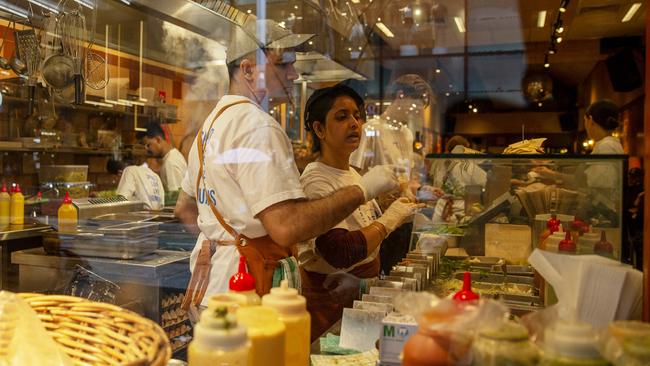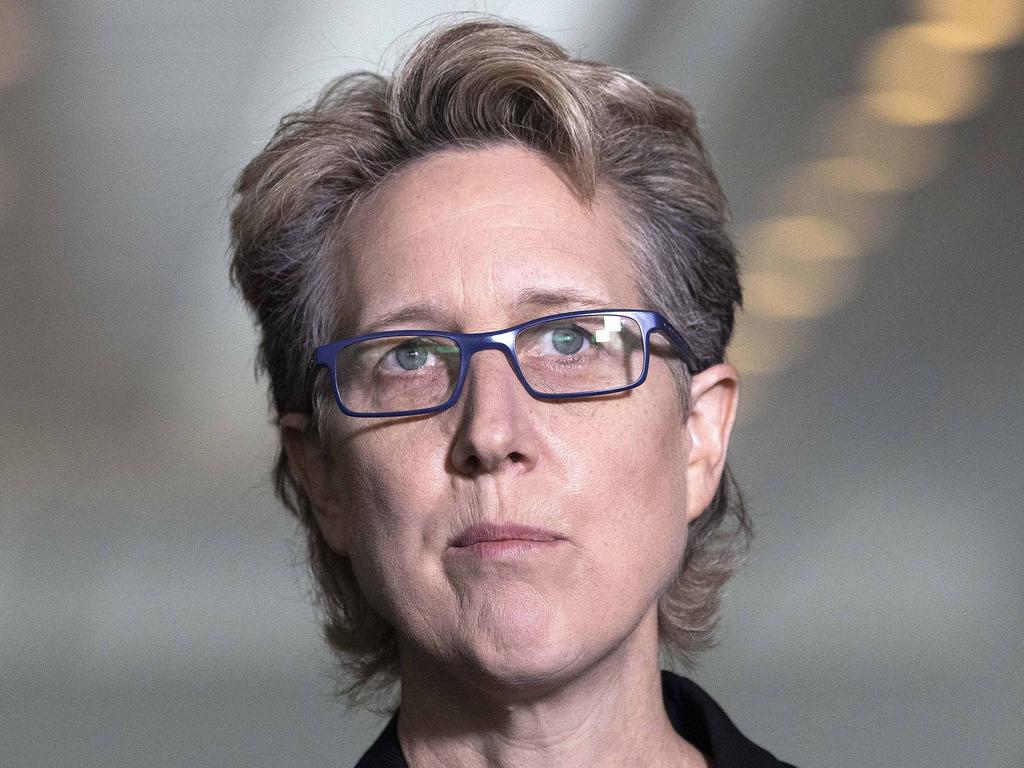We can’t stomach more than 3pc pay rise, say restaurant bosses
Restaurants are pushing to limit this year’s minimum wage increase to just three per cent.

The restaurant and catering sector is pushing to limit this year’s minimum wage increase to just 3 per cent, claiming a rise in line with inflation would result in “major price hikes”, reduced operating hours and job losses, especially for casuals.
The proposed 3 per cent increase, less than half the rate of inflation, is below the amount backed by most other employers groups, the government and the union movement in their submissions to the Fair Work Commission’s annual wage review.
The ACTU claim is the biggest dollar amount sought by unions at an annual wage review but only the highest percentage amount sought since 2018 when unions pursued a 7.2 per cent rise, equivalent to $53 a week
If granted, the weekly national minimum wage would increase by $56.88 to $869.48 and annually by $2965 to $45,337.
The government has urged the commission to ensure the real wages of the lowest paid “do not go backwards”, while limiting the inflation-linked rises to workers on the national minimum wage and lowest award rates. The bid by restaurants to cap the increase to 3 per cent follows major retailers including Coles and Woolworths revising their position and backing a 3.5 per cent rise, down from an initial 3.8 per cent.
In its submission, the Restaurant and Catering Industrial Association, representing 57,000 restaurants, cafes, and catering businesses, said hospitality industry operators continued to face challenges to their costs, with businesses struggling to remain price-competitive amid inflation.
“Recent decisions by the Reserve Bank of Australia to increase the cash rate, the ongoing inflationary environment for energy costs and food inputs, along with workers’ compensation premiums and other business inputs have all contributed to an economic environment that reduces business confidence,” it says.

According to the association’s most recent industry benchmarking report, 45 per cent of businesses said net profit had decreased, with 40 per cent of business owners working 20 or more unpaid hours each week.
Due to rising penalty rates, there had been a 6 per cent annual increase in businesses choosing not to operate on both Sundays and public holidays. “Small businesses that are unable to afford any excessive increases in the modern award wages rates and the subsequent application of weekend or public holiday penalty rates, will discourage trading and reduce the number of available shifts for employees, resulting in further underemployment and unemployment,” the association says.
The association said “an unsustainable wage increase will jeopardise the recovery and viability of small businesses, which are already feeling the pinch from rising operational costs and reduced consumer spending”. “As businesses struggle to remain price competitive, an unsustainable wage increase will result in major price hikes across the sector, with the cost burden carried by consumers,” it says.
Family and small businesses were dealing with the impact of interest rate increases, supply chain disruptions that increase business costs, and rising energy prices while struggling to maintain competitive pricing.







To join the conversation, please log in. Don't have an account? Register
Join the conversation, you are commenting as Logout